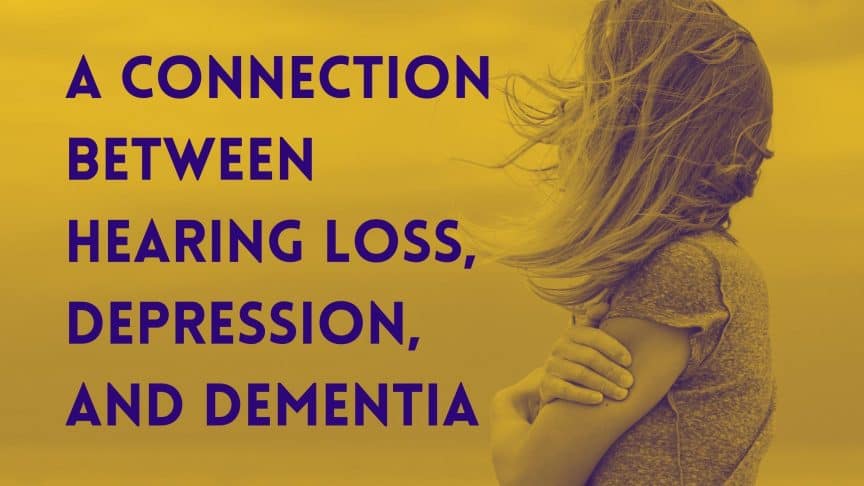- A Closer Look at Common Myths About Hearing Loss - May 7, 2024
- The Impact of Pets on Emotional and Hearing Health - April 26, 2024
- Strategies for Coping with Single-Sided Deafness - April 16, 2024
Dementia is a condition of great concern for aging people and their loved ones. The FDA has recently approved a new Alzheimer’s medication, and doctors are curious to see what effect it will have on their patients who have a particular risk of dementia. Although dementia does not discriminate in who it can affect, there are certain factors in life that bring a higher likelihood of dementia. Indeed, these risk factors are one way that doctors and scientists think about preventing dementia.
Although reducing risk factors is not a sure-fire way to prevent the cognitive disorder, it can be effective to reduce rates at the population level. Two important risk factors for dementia are hearing loss and depression. Although they might connect differently with dementia, both of these conditions have the potential to make dementia more likely and to increase the pace of cognitive decline.
To confound matters further, hearing loss also has a connection with depression, making it difficult to tell which condition is causing the other. Let’s take a look at a recent study coming from researchers affiliated with the New York State Psychiatric Institute and Columbia University to see if we can disentangle these complicated effects.
The Study
The research team led by Dr. Katharine K. Brewster engaged in a study with 8529 participants aged 60 and over to determine how these conditions are related. What they discovered affirmed some prior thought about the connections between hearing loss, depression, and dementia. Those with hearing loss had statistically higher risk of depression, as well as dementia. Those with depression also had higher rates of dementia. These three relationships made it unclear if hearing loss had a direct causal influence on dementia, or if it was part of a mechanism causing depression which then proceeded to cause dementia.
Using some robust statistical methods, the researchers were able to disentangle the effects of hearing loss and depression on the likelihood of dementia, ultimately determining that they had independent effects. Although this study gave a sense of what conditions cause which other ones, they weren’t able to use this data to determine how the relationships work. In order to get to the bottom of this, qualitative data is an important approach to pursue.
The Causal Mechanism
Much remains to be understood about the connections between these three conditions, but we do have additional research showing a connection between the use of spoken language and dementia. Those who don’t exercise the parts of the brain related to speech tend to have higher rates of dementia, almost as if there were a contagious effect between parts of the brain. While researchers continue to explore this possibility, a few studies have shown that those who have hearing loss use different parts of their brain to process information than those who do not have hearing loss.
By devoting more and different parts of the brain to speech cognition, it is possible that other parts of the brain related to memory and comprehension might suffer. Perhaps this connection helps us understand how depression figures into the picture. Those who have clinical depression tend to isolate themselves from social settings where verbal communication takes place. With fewer opportunities to use the speech-related parts of their brains, a similar effect might take place as those with hearing loss. This relationship might hold an important key to understanding how dementia changes the use of the brain, including reallocating parts that are designated for other purposes.
Preventative Measures
Although the connection only exists at the level of statistical relationships, meaning that no single person can know for sure if they can prevent dementia, taking steps to curb hearing loss and depression are hopeful steps to create a healthy brain. Getting treatment for hearing loss makes it possible to exercise the brain through spoken conversation, filling in the gaps in language that makes it possible to understand easily.
Similarly, promoting social connections is both a way to prevent and to alleviate the experience of depression, and these social connections can take place in the most intimate or the most loosely acquainted settings. If you have a loved one who has hearing loss or depression, the time is now to encourage treatment, with possible benefits for dementia down the road.

